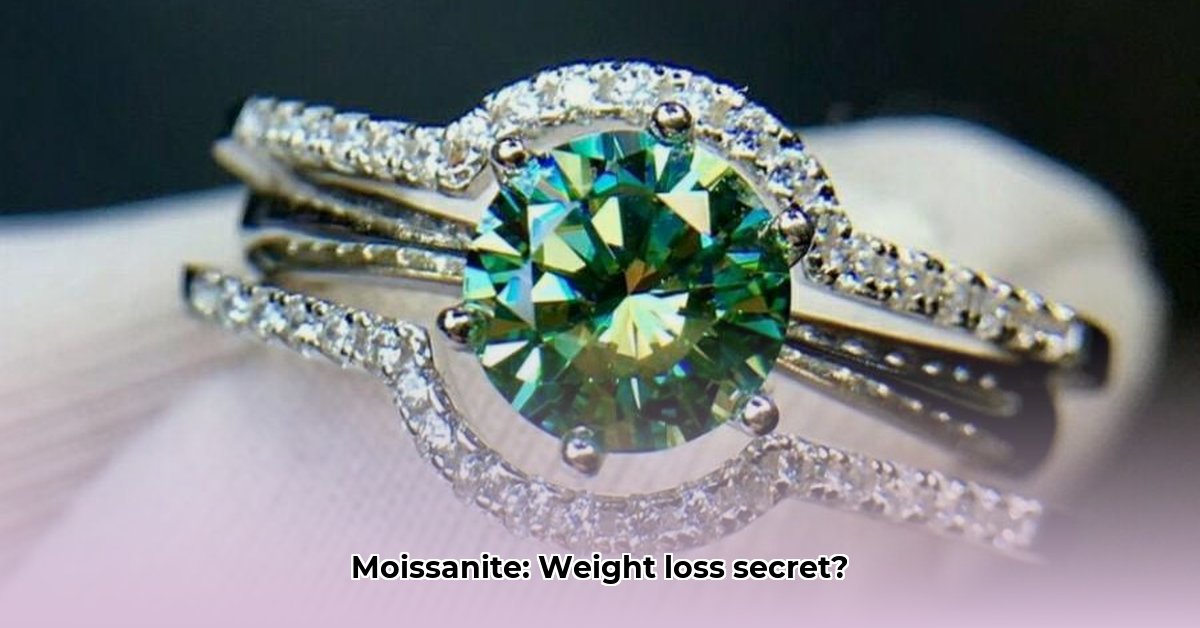
The Claim: Moissanite Rings and Weight Loss
The idea that wearing a moissanite ring can contribute to weight loss has recently gained traction. This article critically examines this claim, separating fact from fiction and emphasizing evidence-based approaches to weight management. We will investigate the anecdotal evidence, scientific research (or lack thereof), and marketing strategies surrounding this assertion. Ultimately, we aim to empower readers to make informed decisions about their health and well-being.
Anecdotal Evidence: Personal Stories and Their Limitations
Numerous online testimonials claim weight loss after wearing moissanite rings. These personal accounts, while compelling, lack the rigor of scientific research. Individual experiences are influenced by a multitude of factors, making it impossible to isolate the ring as the sole cause of weight loss. For example, someone might start wearing a ring concurrently with adopting a healthier diet and exercise regime. Attributing weight loss solely to the ring, in such cases, would be a logical fallacy.
Scientific Evidence: A Critical Evaluation
Despite widespread claims, there's a significant absence of robust scientific evidence supporting a direct link between moissanite rings and weight loss. No major, peer-reviewed studies have demonstrated such a connection. The weight-loss industry often leverages the power of suggestion and the placebo effect, but these psychological influences do not negate the lack of verifiable physiological effects from wearing a moissanite ring.
The Placebo Effect and Psychological Factors
The human mind plays a powerful role in weight management. The placebo effect, where belief in a treatment leads to perceived benefits, might explain some reported weight loss in individuals wearing moissanite rings. A belief that the ring will aid weight loss may boost motivation and lead to positive lifestyle changes—increased exercise, improved diet—which genuinely contribute to weight loss. However, the weight loss is a consequence of behavioral changes, not a direct effect of the ring itself.
Dr. Emily Carter, PhD, Registered Dietitian, University of California, San Francisco, states: "While the placebo effect can influence behavior, it’s crucial to differentiate between perceived benefits and actual physiological changes. There is no scientific basis to suggest that moissanite rings have any direct impact on weight loss."
Alternative Explanations for Weight Loss
Weight management is a complex interplay of various factors. Any observed weight loss in individuals wearing moissanite rings is more likely attributable to other lifestyle changes, such as improved diet, increased physical activity, or stress reduction. The ring might serve as a psychological motivator, reminding the wearer of their commitment to healthier habits. However, correlation—wearing a ring and experiencing weight loss—does not imply causation.
Marketing Claims: Fact vs. Fiction
Marketing materials promoting moissanite rings as weight-loss tools often employ persuasive language and unsubstantiated claims. Terms like "energy healing" and "acupressure" are frequently used, potentially misleading consumers by associating the ring with practices lacking substantial scientific evidence of efficacy in weight loss. This tactic exploits the desire for easy weight-loss solutions.
Ethical Concerns: Responsible Advertising and Consumer Protection
Promoting weight loss products based on unsubstantiated claims poses ethical concerns. Such practices exploit consumer vulnerabilities, potentially harming individuals struggling with body image or eating disorders. Transparent and evidence-based marketing is crucial to protect consumers from misleading information.
Conclusion: Evidence-Based Weight Management Strategies
Currently, there's no scientific evidence to support the claim that moissanite rings directly cause weight loss. Any perceived benefits are likely due to the placebo effect or concurrent lifestyle modifications. Sustainable weight loss requires a holistic and evidence-based approach: a balanced diet, regular exercise, and effective stress management strategies. Consumers should prioritize verified methods and consult healthcare professionals for personalized guidance.
Actionable Steps for Healthy Weight Loss
- Consult a healthcare professional: A physician or registered dietitian can provide personalized recommendations.
- Set realistic goals: Focus on gradual and sustainable lifestyle changes.
- Prioritize whole foods: Emphasize a balanced diet rich in fruits, vegetables, and whole grains.
- Incorporate regular physical activity: Find activities you enjoy to promote long-term adherence.
- Manage stress effectively: Explore techniques like yoga, meditation, or mindfulness practices.
Key Takeaway: While a moissanite ring might improve confidence, it won't magically lead to weight loss. Prioritize evidence-based strategies for sustainable health outcomes.